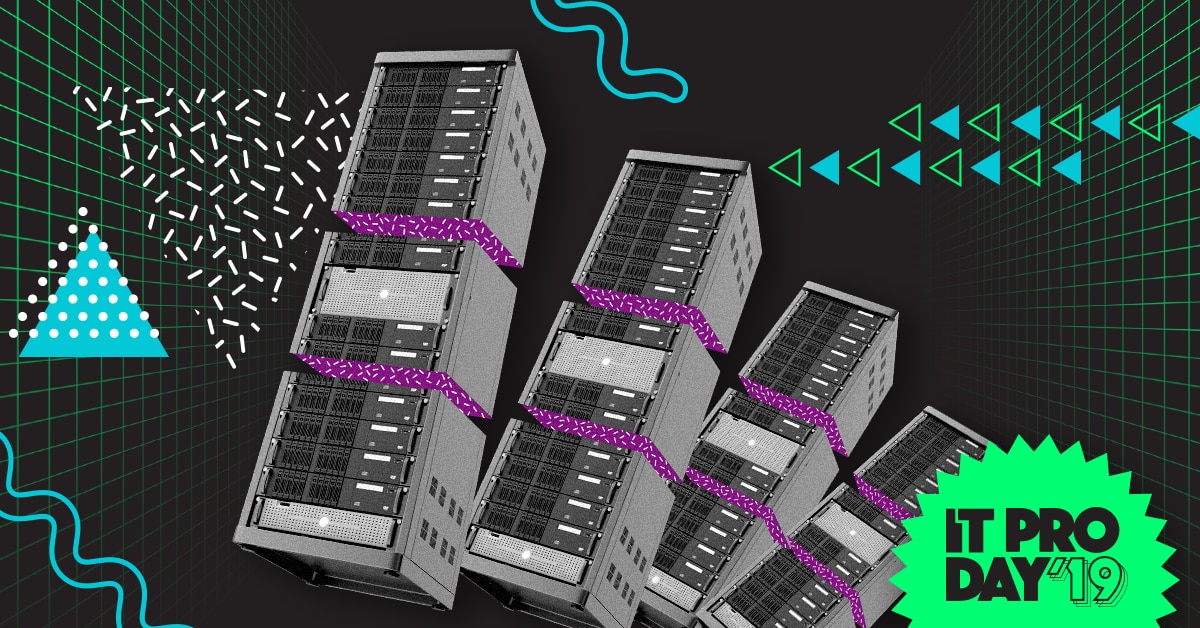The Legacy IT Pro
January 4, 2018
Security

In the fast-paced world of IT, can you afford to be a legacy IT pro? This is a concern for many, which makes it worth examining.
IT functions have been clearly separated since the early days of mainframes. You had your storage team, your server team, your networking team, and so on, but is that really the way we should continue, moving forward? Do we as IT pros gain anything by keeping up with this status quo? If you and your organization stay on this path, how long do you think you can you keep it up?
The best way to define a legacy pro is to share a few examples. Let’s say you were hired to be on the server team in a given enterprise environment around 2008. If you have not developed your skill set beyond Microsoft® Windows Server® 2008 or any related area since then, that’s legacy. A lot has happened in nine years, especially in cloud and security sectors. That means that if you haven’t kept up with the latest technologies, you’ll likely end up being one of those legacy guys.
In networking, my specialty, the same definition applies. If you are a data center networking engineer and you are still doing three-tier design with spanning tree and all that good stuff, you are clearly missing out on the most recent trends.
So, the key take away here is, don’t be afraid to rejuvenate yourself AND the tools of your trade. Going back to our first example, ask yourself if you are really living up to your job title. Gone are the days of updating to a new software release every second year, or whatever your company policy used to be. You really need to tell your vendor of choice to go with update cycles that match the trends of the market.
Now that you have progressed from a legacy IT pro to the next level, how do you take this even further? My suggestion is that you evolve from being a great IT pro to being an individual who has knowledge beyond your own area of expertise. It’s probably time you started envisioning yourself as a solution engineer.
A recurring theme these days is for clients to want a complete solution. In other words, organizations really do not want to deal with a collection of IT silos; they’d prefer to treat IT as a whole. This means that your success as an engineer on the networking/server/storage team is not only dependent on your own performance, but also that of your fellow engineers.
To deliver on this promise of a solution, you really need to start getting comfortable dealing with engineers and support staff from different parts of your organization. It doesn’t matter if you work in a consultancy role or in enterprise IT, this is something you need to start gradually incorporating into your workflow.
I suggest you start by establishing communication lines across your organization. Be open about your own job domains and tasks. Buy that co-worker from servers a cup of coffee and be genuinely interested in his/her area of expertise. Ask questions and show appreciation for his or her work.
Don’t be afraid to bring this level of cooperation to the attention of management to gain some traction across multiple business units. More often than not, you will get this level of support if you offer solutions that provide value.
Start sharing software tools and features across silos to spark further interest and energy into this new way of thinking. PerfStack now allows you to customize panes of glass according to individual teams and groups. Why not utilize this to create a specific view for the storage team that gives them visibility into your NetFlow data?
I am not advocating a complete abandonment of your current role. I am suggesting instead that you transform your specialization into a new multi-level sphere of expertise. If you are on the networking team, go full speed ahead with that, but also pay attention to what is happening in the world of compute and maybe storage. Read about the topic, or even get some training on it. That way you are not completely oblivious to what’s going on around you, which makes communicating across the organization even easier. Doing these things will make you a better engineer and confirm that you are a true asset to your company. In the end, isn’t that what it’s all about?
To summarize, I do think it’s very important to evolve in this industry. If we are to meet future demands, we need to start thinking and acting differently. By gaining new skill sets and breaking down the silos we have built up over the years, we are on a clear path of evolution. Instead of being afraid of this evolution, look at it with a positive attitude and see all the possible opportunities that arise because of it.
With that in mind, I wish you the very best. Take care and go forth into this new era of IT!
/Kim






